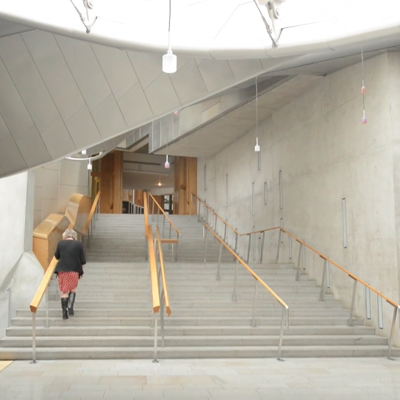Public policy highlights November 2021
Our policy committees have had a busy month analysing and responding to proposed changes in the law. We do this to positively influence the creation of a fairer and more just society through our active engagement with the Scottish and United Kingdom Governments, Parliaments, wider stakeholders and our membership.
You can read more about this month's highlights below:
Covid recovery: public health, services and justice system reforms
The Society’s Public Policy Committee welcomed the chance to respond to this Scottish Government consultation and considered four broad themes which set the context for its comments on Coronavirus legislation applicable in Scotland and the wider UK. They are Parliamentary scrutiny and the rule of law, respect for human rights, devolution, and other public health legislation.
Parliamentary Scrutiny and Rule of Law
The committee’s response noted that parliamentary scrutiny of the Coronavirus Act 2020 was limited. However, it conceded that the nature of Covid-19 and the serious and imminent threat it posed to the community at large proved to be so devastating that it was right that the Parliament’s response matched the level of threat. As circumstances have changed, it will be important that where future law is contemplated, there will be adequate pre-legislative consultation which takes into account case law. It is also essential that any future legislation and subsequent guidance is explained to the public in clear, unambiguous terms so as to avoid confusion about their effect.
Respect for Human Rights
The committee welcomed the publication along with the UK Coronavirus Bill of the Human Rights Memorandum from the Department for Health and Social Care which dealt comprehensively with European Convention on Human Rights (ECHR) compliance. Similar respect for human rights was shown in the Explanatory Memorandums which accompanied the Scottish Bills. Where the legislation engages the ECHR, the rights engaged were qualified, not absolute and their exercise needed to be balanced with the wider interests of public safety and the protection of individual and community health.
The response highlighted the Human Rights Act 1998 which applies to the acts of public authorities under the Acts and encouraged public authorities which undertake coronavirus functions to ensure compliance with Convention rights. The committee stated its expectation that human rights and the rule of law will be fully respected when applying the provisions of the Coronavirus legislation. It noted that the Society has highlighted throughout this process those provisions which it considers may have breached human rights. It is crucially important, especially in times of pandemic emergency which impact on the rights and freedoms of all citizens, that the law is applied equally and that the human rights of all are respected.
Devolution
The committee noted that the Coronavirus Act 2020 respected the devolution arrangements and the Legislative Consent convention, recognised in the Scotland Act 1998 Section 28(8), that the UK Parliament will not normally legislate with regard to matters that are within the legislative competence of the Scottish Parliament without the consent of the latter. Many of the matters to which the Coronavirus Act 2020 relates are within the legislative competence of the Scottish Parliament or affect the executive competence of the Scottish Ministers. The Scottish Parliament agreed the Legislative Consent Motion on Tuesday, 24 March 2020.
Public Health legislation
The committee recommended a review of the law relating to health emergencies. Legislation already exists to deal with circumstances related to pandemic disease, namely the Civil Contingencies Act 2004 and the Public Health (Control of Disease) Act 1984.
The committee highlighted that the preference of Government to employ either the Coronavirus specific legislation or Public Health Acts rather than Civil Contingencies legislation raises questions about the legislative framework which applies across the UK and its fitness to deal with future public health crises. Once there is sufficient scope for a parliamentary inquiry into the fitness of the legislative (and policy) framework, the committee envisages this being a priority for all the Administrations and Legislatures across the UK.
In this connection, the committee suggested that the Four Governments consider collaboration on the creation of a Standing Advisory Committee on Pandemics which, under an independent Chair would comprise medical, scientific, educational, research, and other experts drawn from the Four Nations and Ministerial Members from the Four Governments. This body would keep under review developments in virology and epidemiology, oversee preparation for viral events including supply chains, stockpiling of medicines, development of vaccines, medical equipment and PPE, training of medical and nursing staff and preparation of educational tools to inform the public and general preparedness for future pandemics.
The committee also suggested a quadripartite parliamentary group, bringing together all the UK legislatures to share experience, best practice and knowledge about legislating in the pandemic, using as a model the Inter-Parliamentary Group formed to consider Brexit.
Subordinate legislation concerning Coronavirus
The committee’s response pointed out that there is a considerable amount of Coronavirus subordinate legislation across the UK: 403 UK statutory instruments (regulations), 208Scottish Statutory Instruments, 265 Northern Irish Statutory Rules and 176 Welsh Statutory Instruments at the time of writing. With so much subordinate legislation (and the potential for more) covering so many areas of the law, it is difficult for legislators, advisers, and those subject to the regulations to be clear about the law which applies. It would be helpful if the regulations could consolidated on a regular basis.
Finally, the committee stressed that it remains unclear what the public health situation will be at the end of March 2022. It suggested that measures should continue beyond that stage, but not be made permanent. Equally, if there were to be a significant reduction in the risk to public health, it may be proportionate to discontinue those measures at that stage.


